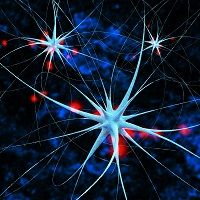Further Analysis of the Benefits of Deflazacort in Patients with Duchenne Muscular Dystrophy
Researchers at the American Academy of Neurology’s 68th Annual Meeting reported analyses of the phase III trial of the investigational glucocorticoid (deflazacort/Marathon Pharmaceuticals), which was previously found to improve muscle strength in Duchenne Muscular Dystrophy (DMD) patients.

Researchers at the American Academy of Neurology’s 68th Annual Meeting reported analyses of the phase III trial of the investigational glucocorticoid (deflazacort/Marathon Pharmaceuticals), which was previously found to improve muscle strength in Duchenne Muscular Dystrophy (DMD) patients.
The presentation provided additional details that showed the effects of deflazacort on muscle strength and pulmonary function in the subset of DMD patients who had lost their ability to walk.
In the phase III trial, 196 DMD patients were randomized to receive deflazacort 0.9 mg/kg/day, deflazacort 1.2 mg/kg/day, prednisone 0.75 mg/kg/day, or placebo for 12 weeks.
Findings suggested the primary endpoint was change in mean muscle strength from the start of the study to week 12 with deflazacort and prednisone compared to placebo.
Upon assessed timed functional tests (TFT), experts noted that the patients given deflazacort at both doses exhibited significant improvement from baseline to week 12 compared to placebo in their ability to perform three tests: time from lying down to standing, time to climb four stairs, and time to run or walk 30 feet.
Based on the clinical studies, deflazacort was found to potentially be a new treatment option for DMD patients.
The most commonly reported adverse events in this treatment were cushingoid appearance, erythema, central obesity, weight gain, and headache.
There is no existing FDA-approved treatment for DMD, but the FDA has granted Fast Track status, Orphan Drug designation, and Rare Pediatric Disease designation for the drug.